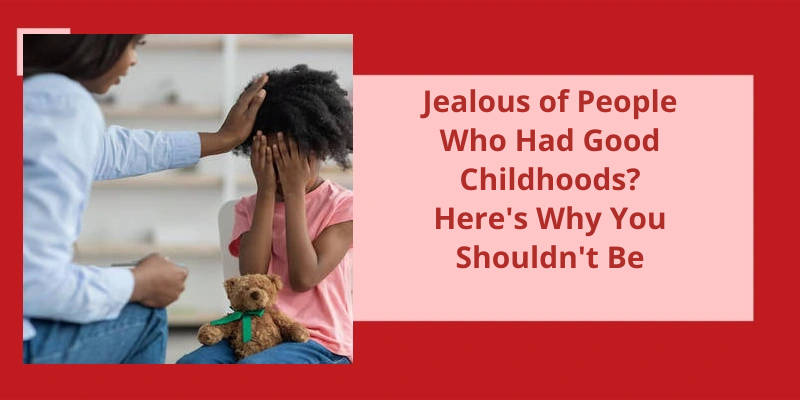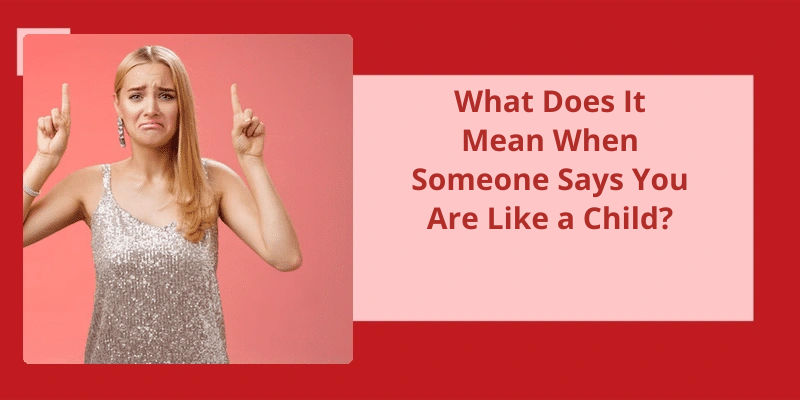"I Regret Sharing My Feelings – Magic" explores the emotional journey of an individual who made the heartfelt decision to open up about their deepest emotions, only to face the remorse that followed. Magic serves as a metaphor for the vulnerability and illusion of safety offered when one decides to reveal their true feelings. This introspective piece delves into the complexities of regret, self-acceptance, and the blurred line between authenticity and the fear of judgment. With introspection and candor, it sheds light on the consequences of seeking validation and the transformative power of embracing one's emotions. Dive into this thought-provoking exploration as it unravels the path to healing and self-discovery in the midst of regret and vulnerability.
What to Do When You Regret Telling Someone Something Personal?
When you find yourself regretting sharing something personal with someone, it’s important to remember the difference between guilt and shame. Guilt is feeling remorse for a specific action or words, whereas shame is a more deep-rooted feeling of personal inadequacy. Recognizing this distinction can help you navigate your emotions and move forward in a healthier way.
One crucial step in dealing with regret is accepting what’s and acknowledging that some things may change as a result of your disclosure. Understand that you can’t control how others react or respond to what youve shared. This acceptance will help you let go of any expectations or attachment to specific outcomes and free you from further emotional turmoil.
Apologizing for what you said and making amends, if necessary, is another crucial step. Taking responsibility for your words shows humility and respect for the other persons feelings. It’s essential to validate and empathize with how they may feel in response to your disclosure. Make space for them to express their emotions and validate their perspective.
In the midst of regrets and apologies, it’s easy to forget to show yourself kindness. Remember to be gentle with yourself and practice self-compassion. Acknowledge that everyone makes mistakes and that it’s an opportunity for growth and learning. Treat yourself with the same understanding and forgiveness you’d offer a friend.
Lastly, learn from your mistakes. Reflect on why you regretted sharing that particular personal information and think about what you could have done differently. Use this experience as a lesson to make more informed choices about what and how much to share with others in the future. By learning from your regrets, you can become more self-aware and make better decisions about disclosing your feelings.
Moving On: Offer Guidance on How to Move Forward and Let Go of the Regrets and Negative Emotions Associated With Sharing Personal Information.
- Reflect on the past experiences and acknowledge any regrets or negative emotions.
- Focus on the lessons learned from the situation rather than dwelling on the negative aspects.
- Practice self-forgiveness and understand that everyone makes mistakes.
- Seek support from trusted friends or family members who can provide a listening ear and advice.
- Engage in activities that promote personal growth and positive thinking, such as meditation or journaling.
- Set new goals and priorities to shift focus towards the future.
- Take proactive steps to protect personal information, such as updating privacy settings and being cautious about what’s shared online.
- Embrace the opportunity for a fresh start and use the experience as motivation for personal development.
- Forgive oneself and others involved, as holding onto resentment only hinders personal growth.
- Remember that everyone deserves a second chance and that moving on is a vital part of life.
It’s natural to feel regret after opening up about our true feelings, as the vulnerability and fear of judgment can easily take hold.
Why Do I Regret After Sharing My Feelings?
Sharing our feelings and emotions with others can be a vulnerable and risky experience, which can often lead to regret. One reason for this regret may stem from the fact that we’re simply not accustomed to opening up and being vulnerable with others. It may be a new and unfamiliar territory for us, and therefore it feels uncomfortable and foreign.
By opening up and exposing our deepest secrets and emotions, we may feel like we’ve betrayed ourselves. We’ve allowed others to see a side of us that we usually hide, and this vulnerability can be unsettling. We fear that by sharing, we’ve given others ammunition to use against us in the future, or that they may not handle this information with the care and respect it deserves.
Regret may also surface when we realize that our feelings and emotions haven’t been received or understood by others in the way we’d hoped. We may have expected empathy or validation, but instead, we receive indifference or even dismissal. This can be incredibly disheartening and make us question whether it was worth it to share in the first place. We may regret exposing our innermost thoughts and emotions when we perceive that they’ve been disregarded or invalidated.
Furthermore, regret can arise from a lack of trust in others. If we’ve been hurt or betrayed in the past, it can be challenging to trust others with our feelings. We may fear that sharing will result in more pain and disappointment, leading to regret for ever opening up in the first place. This lack of trust can make it difficult to form deep connections and hinder our ability to share and express ourselves honestly.
It could be due to our lack of familiarity with opening up, the fear of betraying ourselves, the disappointment in how our feelings were received, a lack of trust in others, or the fear of vulnerability. Understanding these underlying factors may help us navigate our emotions and make more informed decisions about sharing our feelings in the future.
The Importance of Setting Boundaries When Sharing Feelings
When it comes to sharing our feelings, setting boundaries is crucial. It’s natural to want to confide in someone and seek support, but it’s important to consider who we share our emotions with.
Setting boundaries involves being mindful of the person’s receptiveness, trustworthiness, and ability to provide the support we require. Sharing our innermost thoughts and vulnerabilities requires a level of trust and understanding that not everyone possesses.
Regrettably, if we’re not careful about whom we share our feelings with, we may expose ourselves to potential judgment, criticism, or even betrayal. Therefore, it’s essential to evaluate the person’s character and their track record of respecting boundaries before opening up.
Boundaries also play a role in determining how much information we disclose. Being selective about the extent of our disclosure allows us to protect ourselves from potential harm. It’s okay to be vulnerable, but it’s equally important to be cautious and protect our emotional well-being.
Ultimately, setting boundaries when sharing our feelings helps us maintain a healthier emotional balance, ensuring that our trust is placed in the right hands and minimizing the chances of experiencing regret or negative consequences.
Source: Why do I feel regret after sharing my problems to a friend?
However, the complexity of human nature and the multitude of factors that contribute to the experience of regret go beyond a simple evolutionary explanation. While learning from mistakes is undoubtedly a crucial aspect, additional psychological, social, and cultural influences shape our feelings of regret. By examining these various dimensions, we can gain a deeper understanding of what causes the complex emotion of regret and how it impacts our lives.
What Causes Feelings of Regret?
The causes of feelings of regret can be multifaceted and complex. One major factor is the inherent human tendency to reflect on past actions and outcomes. When we perceive that our choices have resulted in negative consequences, we may experience regret. This introspection is influenced by various factors, such as societal norms, personal values, and external pressures.
Hindsight bias often plays a significant role, as it allows us to see the potential value or benefit of alternative choices after the fact. This amplifies the feeling of regret, as we perceive that the outcome could have been different if only we’d chosen differently.
Opening up emotionally can make us feel vulnerable and exposed, creating a sense of regret if we perceive negative reactions or judgment from others. This regret may arise from a fear of rejection, disappointment, or the belief that we’ve revealed too much of ourselves, diminishing our privacy or control.
Societal expectations and pressures often shape our decision-making process, leading to actions or choices that may not align with our authentic selves.
Ultimately, regret can serve as a valuable learning experience. It allows us to evaluate past choices, reassess our priorities, and make adjustments for the future. However, dwelling excessively on regret can be counterproductive and hinder personal growth. It’s essential to acknowledge and learn from past mistakes, but also to forgive ourselves and move forward, embracing new opportunities with a sense of resilience and optimism.
But what happens when the consequences go beyond momentary discomfort? When words spoken in haste or without thinking result in long-lasting damage to relationships, careers, or even personal safety? In this article, we will explore the potential aftermath of saying something regrettable and discuss strategies for preventing and repairing the harm caused by our words.
What Happens When You Say Something You Regret?
What happens when you say something you regret? Almost everyone can recall a time when they said something they later regretted. Most often it leads to embarrassment or guilt, though the episode might be quickly forgotten. At the other extreme, however, disclosing information inappropriately may have serious consequences. We live in an age where sharing our feelings and thoughts has become almost second nature, thanks to the rise of social media and technology. But sometimes, this can backfire. The magic of instant communication can lead to impulsive decisions that we might later come to regret.
When we share our feelings without thinking, we expose our vulnerabilities to others. We may reveal secrets, personal experiences, or emotions that were meant to be kept private. This can leave us feeling exposed and vulnerable, as if weve given away a part of ourselves that we can never get back. We may also fear judgment or ridicule from those who now know our innermost thoughts. In these moments, we cant help but wish for a magic wand that could erase our words and undo the damage.
Moreover, the regret we feel from oversharing can extend beyond the immediate aftermath. Sometimes, what we say in a moment of vulnerability can have long-lasting effects on our personal and professional relationships. Trust may be broken, friendships may be strained, and reputations may be tarnished. The magic of trust and goodwill can be shattered with just a few ill-considered words.
The regret we feel from sharing our feelings is a reminder of the importance of thoughtful communication. It teaches us to pause before speaking or posting, to consider the potential consequences of our words. The magic lies in being able to express ourselves and connect with others, but also having the wisdom to recognize when it’s appropriate and when it’s not. By honing our ability to express our feelings effectively and responsibly, we can mitigate the regret that often accompanies thoughtless sharing.
The Role of Empathy in Preventing Regretful Communication
Empathy plays a crucial role in preventing regretful communication. When we share our feelings without considering the impact on others, it can lead to misunderstandings, hurt feelings, and damaged relationships.
By practicing empathy, we’re able to better understand and connect with the emotions and experiences of others. This helps us gauge the potential impact of our words and actions before expressing ourselves.
Empathy allows us to put ourselves in someone else’s shoes, considering their feelings, needs, and perspectives. It helps us become more sensitive, thoughtful, and cautious in our communication.
By actively listening and acknowledging others’ emotions, we can avoid saying or doing things that we may later regret. Empathy encourages open dialogue, respect, and effective communication, fostering healthier and more fulfilling connections with others.
When we pour out our emotions without considering the manner in which we express them and the reactions we receive, science tells us that we may be setting ourselves up for a more detrimental emotional state. Without gaining insight into our feelings and finding ways to comfort ourselves, the act of sharing our emotions can have adverse effects, leaving us feeling worse off than before.
Why Do I Feel Worse After Sharing My Feelings?
Why do I feel worse after sharing my feelings? Science suggests that it depends, in part, on how you share and how people respond to you. Expressing our emotions often to others may actually make us feel worse, especially if we don’t find a way to gain some perspective on why we feel the way we do and take steps to soothe ourselves.
When we share our feelings without carefully considering the context and the person we’re confiding in, we risk experiencing negative reactions, dismissive responses, or invalidation. This can leave us feeling even more alone, misunderstood, and invalidated than before. Additionally, if we continuously seek validation and emotional support from others without developing our own self-compassion and self-soothing skills, we become reliant on external sources for emotional regulation and may feel worse when they aren’t available or responsive.
Furthermore, expressing our feelings repeatedly, without seeking a resolution or taking actions to address the underlying issues, can perpetuate a cycle of rumination and emotional distress. Without actively working towards finding solutions or making changes in our lives, simply venting our emotions may reinforce negative patterns and keep us stuck in a spiral of regret, frustration, or sadness.
It’s important to note that not all instances of sharing our feelings will have negative outcomes. Validating and supportive responses from friends, family, or therapists can be helpful and healing. Sharing our emotions in a safe and non-judgmental environment can provide us with a sense of relief and understanding. However, it’s crucial to strike a balance and not rely solely on external validation or emotional support. Cultivating self-compassion, journaling, seeking professional help, or engaging in self-soothing activities can all be beneficial steps in finding a healthier approach to processing and sharing our feelings.
The Role of Therapy in Providing a Safe and Supportive Space for Sharing Feelings
- The therapy process involves creating a safe and supportive environment where individuals can freely share their thoughts and emotions.
- A therapist helps clients explore and understand their feelings without judgment or criticism.
- This safe space allows individuals to open up and express themselves without fear of being misunderstood or invalidated.
- Therapy provides a confidential setting where clients can discuss sensitive or personal topics, knowing that their privacy will be respected.
- A therapist’s role is to listen actively and empathetically, offering understanding and validation for their clients’ experiences.
- In therapy, individuals have the opportunity to gain insights into their emotions, thoughts, and behaviors, leading to personal growth and self-discovery.
- The safe and supportive space created in therapy fosters a therapeutic relationship built on trust, which enhances the effectiveness of the therapeutic process.
- Through therapy, individuals can develop coping skills and strategies to manage their emotions and navigate life’s challenges more effectively.
- The role of therapy in providing a safe and supportive space is crucial for individuals to feel heard, validated, and understood.
Conclusion
In conclusion, the experience of sharing our deepest feelings can often be both exhilarating and terrifying. We must exercise caution and consider the potential consequences before opening up to others, especially in the realm of magic. While it’s essential to express ourselves authentically and seek support when needed, we must also be mindful of the vulnerability that comes with it. Striking a balance between personal growth and self-care is crucial to avoid regrets. Ultimately, regretting sharing our feelings isn’t an indictment of vulnerability itself, but rather a call to reevaluate the circumstances and recipients of our emotional disclosure. Let’s approach the realm of magic with a discerning eye, respecting it’s power and understanding the delicate nature of sharing our innermost thoughts and emotions.






